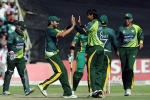- Web
- Humsa
- Videos
- Forum
- Q2A


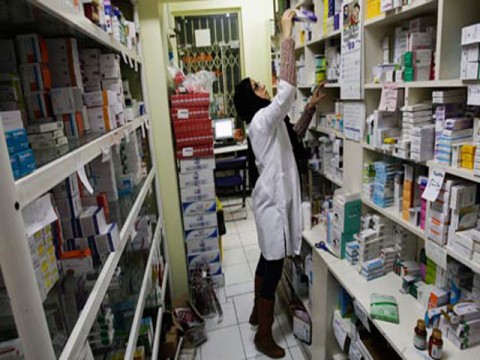 (c) The Nation
(c) The Nation
Hundreds of thousands of Iranians with serious illnesses have been put at imminent risk by the unintended consequences of international sanctions, which have led to dire shortages of life-saving medicines such as chemotherapy drugs for cancer and bloodclotting agents for haemophiliacs.
Western governments have built waivers into the sanctions regime - aimed at persuading Tehran to curb its nuclear programme - in an effort to ensure that essential medicines get through, but those waivers are not functioning, as they conflict with blanket restrictions on banking, as well as bans on “dual-use” chemicals which might have a military application.
“Sometimes companies agree to sell us drugs but we have no way of paying them. On one occasion, our money was in the bank for four months but the transfer repeatedly got rejected,” Naser Naghdi, the director general of Darou Pakhsh, the country’s biggest pharmaceutical company, told the Guardian, in a telephone interview from Tehran.
“There are patients for whom a medicine is the different between life and death. What is the world doing about this? Are Britain, Germany, and France thinking about what they are doing? If you have cancer and you can’t find your chemotherapy drug, your death will come soon. It is as simple as that.”
European officials are aware of the potential for disaster reminiscent of the debacle of the UN oil-for-food programme imposed on Iraq under Saddam Hussein, and discussions are under way in Brussels on how to strengthen safeguards for at-risk Iranians. The US treasury says its office of foreign asset control is seeking to reassure banks that they will not be penalised for financing humanitarian sales. However, the US and EU bans on doing business with the major Iranian financial institutions still make such transactions extremely difficult and risk-averse western companies have tended to avoid them.
Naghdi, the head of Darou Pakhsh, which supplies about a third of Iran’s pharmaceutical needs, said he can no longer buy medical equipment such as autoclaves (sterilising machines), essential for the production of many drugs, and that some of the biggest western pharmaceutical companies refuse to have anything to do with Iran.
“The west lies when it says it hasn’t imposed sanctions on our medical sector. Many medical firms have sanctioned us,” Naghdi said.A senior British official acknowledged that discussions between London, Brussels and Washington had been going on for months with the aim of unblocking the supply of medicines, but without a decisive outcome. “The problem is that for some of the big pharmaceutical companies and banks it’s just not worth the hassle and the risk of reputational damage, so they just steer clear,” the official said.
The international financial sanctions and the EU oil embargo last year have caused severe damage to the Iranian economy but have so far not forced the Tehran regime to accept restrictions on its uranium enrichment programme. Iran insists it is for electricity generation and medical purposes, while the west and Israel claim it is a front for Iranian ambitions to build nuclear weapons. Major western powers have suggested a new round of talks in Istanbul in mid-January, but Tehran has yet to confirm any date or venue.
Meanwhile, the scale of the looming Iranian health crisis threatens to overwhelm recent efforts to mitigate the sanctions regime. At present 85,000 new cancer patients are diagnosed each year, requiring chemotherapy and radiotherapy which are now scarce. Iranian health experts say that annual figure has nearly doubled in five years, referring to a “cancer tsunami” most likely caused by air, water and soil pollution and possibly cheap low-quality imported food and other products.
In addition, there are over 8,000 haemophiliacs who are finding it harder to get blood clotting agents. Operations on haemophiliacs have been virtually suspended because of the risks created by the shortages. An estimated 23,000 Iranians with HIV/Aids have had their access to the drugs they need to keep them alive severely restricted. The society representing the 8,000 Iranians suffering from thalassaemia, an inherited blood disorder, has said its members are beginning to die because of a lack of an essential drug, deferoxamine, used to control the iron content in the blood.
In the absence of an official supply, the drug market is being flooded with smuggled products. Many arrive on donkeys from Turkey, but there is no way of knowing which products are counterfeit and which are real. The drugs routinely spoil on the long, precarious journey over the rugged frontier. A drugs bazaar has boomed on Tehran’s Naser Khosrow Street, but prices have doubled in a few years and the provenance and authenticity of the medicines on sale are questionable.
US and European governments put the blame squarely on the Tehran regime. “Financial sanctions against Iran are in place because of the Iranian government’s refusal to address the international community’s well-founded concerns about its nuclear programme,” said John Sullivan, a US treasury spokesman. “If there is in fact a shortage of some medicines in Iran, it is due to choices made by the Iranian government, not the US government.” Last month, Iran’s health minister, Marzieh Vahid Dastjerdi, was sacked for complaining that her ministry had only received a quarter of the £1.5bn allocated for the imports of medicine, noting that foreign currency at a subsidised official rate had been spent on imported luxury cars.
In London, the Foreign Office said: “There are a number of explicit exemptions within EU sanctions to allow Iran to purchase humanitarian goods such as medicines. The UK issues, as a priority, licenses for transactions for humanitarian goods. The responsibility for any shortage in humanitarian goods in Iran lies with the Iranian regime.”
Siamak Namazi, an Iranian-American business consultant based in Dubai, argues the regime’s own shortcomings may well exacerbate the acute medical problems in Iran but are not their direct cause. “There is a lot of government mismanagement that is compounding the problem. But Iran had the same government before and there were plenty of medicines around. This is not a chicken-and-egg situation. The shortages have come after the sanctions,” said Namazi.
One of the unintended consequences of sanctions on the health sector is that they have strengthened companies linked to the regime and the Revolutionary Guards at the expense of the private sector, because of their privileged access to hard currency at the official rate. In some cases, those regime-connected firms are actually using their access to cheap foreign currency to acquire drugs cheaply and smuggle them into Iraq, deepening the crisis.
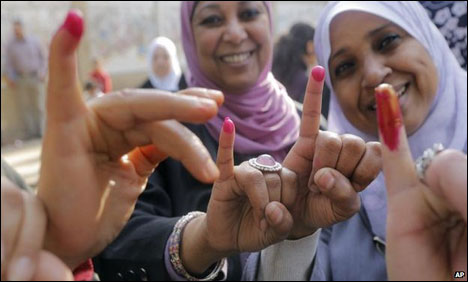 A first day of voting has been taking place in Egypt on a new constitution that could pave the way for fresh elections.
But clashes involving supporters of ousted President Mohammed Morsi left nine dead.
The new charter is to replace the constitution passed under Mr. Morsi before the army forced him out.
The military wants a strong Yes vote in the t..... Read more
A first day of voting has been taking place in Egypt on a new constitution that could pave the way for fresh elections.
But clashes involving supporters of ousted President Mohammed Morsi left nine dead.
The new charter is to replace the constitution passed under Mr. Morsi before the army forced him out.
The military wants a strong Yes vote in the t..... Read more
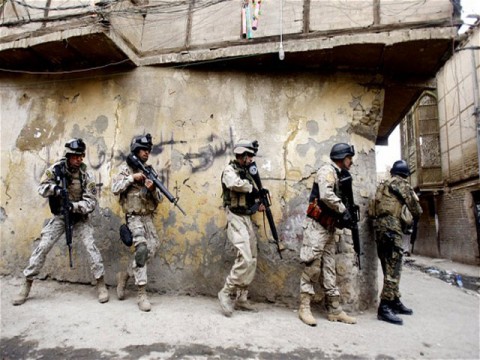 The US and UK are accused of relying on questionable information that suggested Saddam Hussein was manufacturing weapons of mass destruction (WMD), despite warnings over its authenticity.
At the same time, other foreign intelligence that suggested no such programme existed was dismissed, according to a BBC Panorama investigation. One Iraqi spy - coden..... Read more
The US and UK are accused of relying on questionable information that suggested Saddam Hussein was manufacturing weapons of mass destruction (WMD), despite warnings over its authenticity.
At the same time, other foreign intelligence that suggested no such programme existed was dismissed, according to a BBC Panorama investigation. One Iraqi spy - coden..... Read more
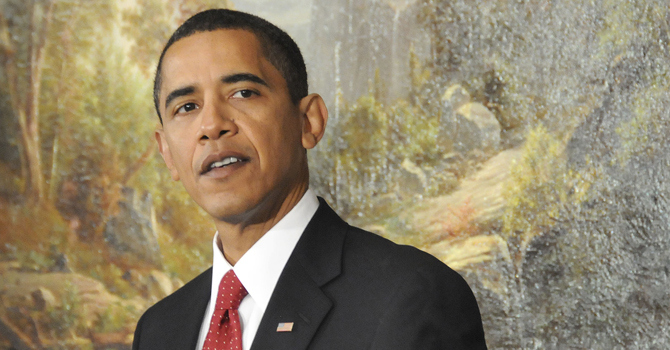 US President Barack Obama met members of the Arab-American community at the White House on Monday ahead of his trip to Israel, the Palestinian Territories and Jordan, a US spokesman said.
During the meeting, Obama reiterated that his trip the Middle East was “not dedicated to resolving a specific policy issue, but is rather a chance to consult wit..... Read more
US President Barack Obama met members of the Arab-American community at the White House on Monday ahead of his trip to Israel, the Palestinian Territories and Jordan, a US spokesman said.
During the meeting, Obama reiterated that his trip the Middle East was “not dedicated to resolving a specific policy issue, but is rather a chance to consult wit..... Read more






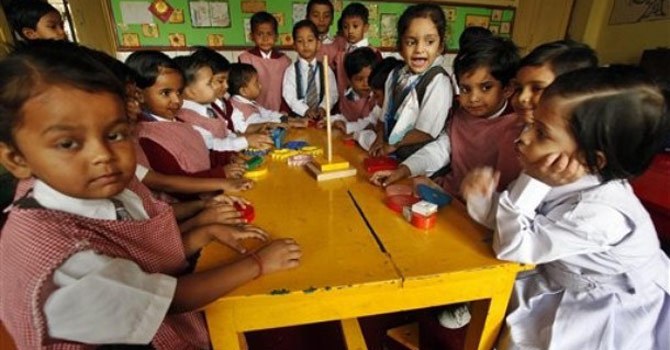
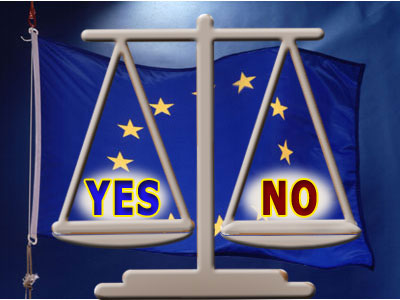




 Clean Chit (Faisal Raza Abidi ...
Clean Chit (Faisal Raza Abidi ...  Akhir Kiyon - 16th December 2...
Akhir Kiyon - 16th December 2...  To The Point - 16th December ...
To The Point - 16th December ...  Capital Talk â
Capital Talk â  Kal Tak - 16th December 2013
Kal Tak - 16th December 2013  Bay Laag - 16th December 2013
Bay Laag - 16th December 2013  Kharra Sach - 16th December 2...
Kharra Sach - 16th December 2...  Awaam - 15th December 2013
Awaam - 15th December 2013 





 Gold Miner
Gold Miner  Superbike GP
Superbike GP  Whipsaw Fighter
Whipsaw Fighter  PacMan
PacMan 

